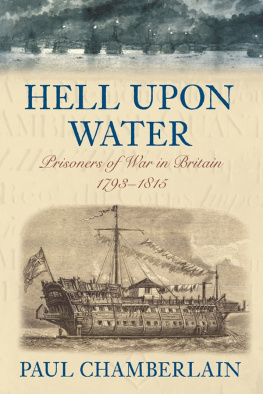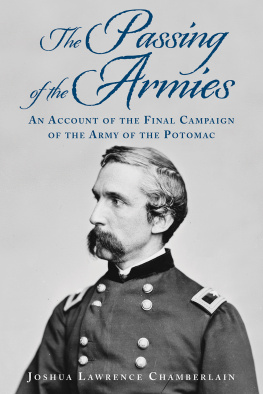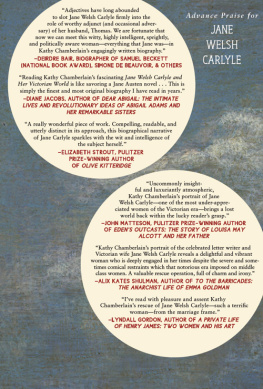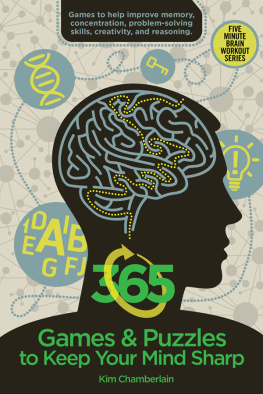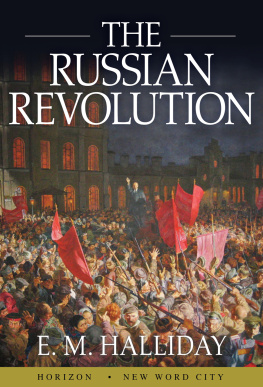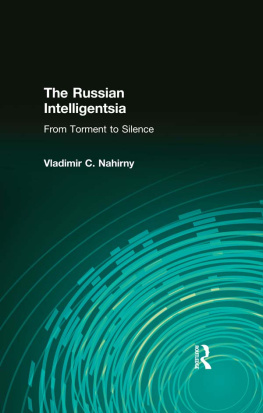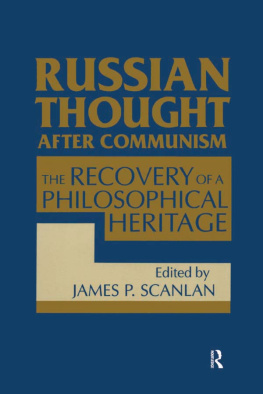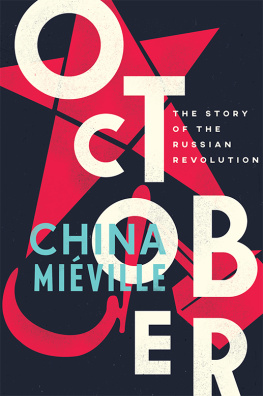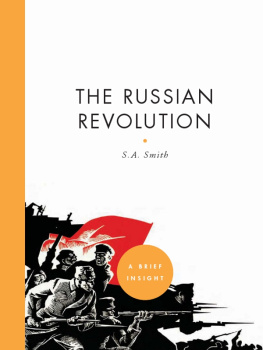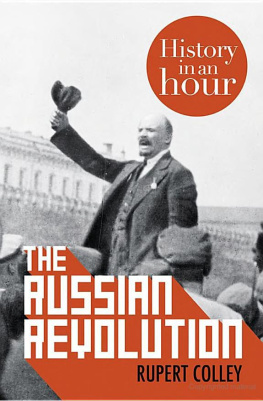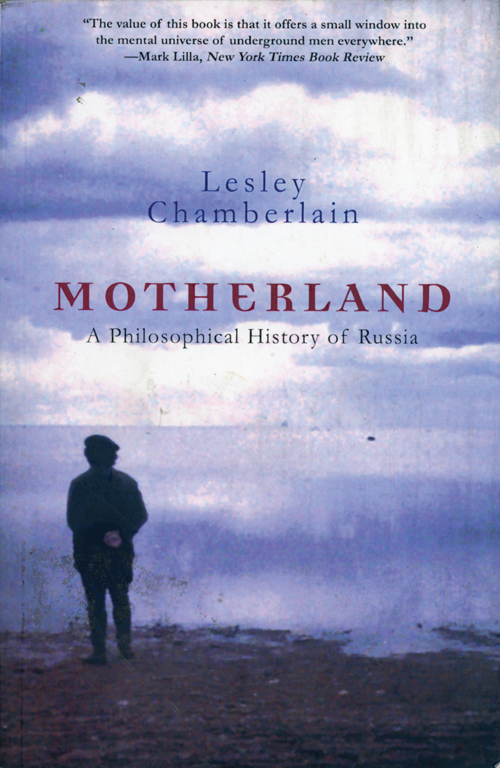Names in the text are transliterations of the Russian originals e.g. Lev Tolstoy, not Leo, following a composite of UK library styles. Exceptions are well-known anglicizations like Alexander (not Aleksandr) and the surname Herzen (not Gertsen), and where writers have themselves Europeanized their names e.g. Alexandre Koyr, Alexandre Kojve. Aleksei remains in its Russian form. Ilyich (not Ilich), another exception, is a concession to easy reading. I have preferred the ending y to i or ii thus Dmitry, not Dmitri, Dostoevsky, not Dostoevskii. Solovyov, Gorbachov and similar names stressed on the final syllable are offered as a better guide to pronunciation than the familiar endings in -iev/-ev. References in the notes and the bibliography follow the style of individual publications.
The power of the spirit is only as great as its expression, and its depth only as deep as it dares to extend itself in its exposition and lose itself.
Hegel, The Phenomenology of Spirit
Russian coming to terms with European civilization during the nineteenth century was significant not only for Russia. However confused and amateurish a process it often was, however much it was impaired by inadequate information, false perspectives, by prejudice and passion, there was at work in it an extremely sure instinct for the things that were unsound and critical in Europe.
Erich Auerbach, Mimesis
In 1996 I had a conversation with Isaiah Berlin who was then in his eighties and doyen of the history of Russian thought in Britain and America. Tea for me, tomato juice for him, in a stifling summer London, in a caf on Piccadilly. Russia had recently shed its Soviet shackles, and Berlin had returned there to meet students at the St Petersburg conservatoire. Its just the same, nothing has changed. His happiness was palpable. The world of his remarkable decade essays of 1955-6, a moving evocation of nineteenth-century Russian intellectual life, had come true before his eyes. In ten passionate years from 1838 to 1848 a generation of idealists had dreamed of Russias moral rebirth. Yet this emotional high point was hardly the whole story of Russias philosophical beginnings. As a student of Russian intellectual history I had always hoped he would say more. I asked him now: Why, if you know this and I know it, why doesnt everyone know that Russia is a culture without reason? The conversation became awkward. Did I know how the rich lived, he asked. Silence on my part. We passed on to the disappearance of the working class from the modern world, and the fate of Marx.
It was a strange encounter, which help revived an old project. To write a philosophical history of Russia had long seemed to me as attractive as it was difficult. Philosophy in Russia? Isaiah bypassed the question by highlighting the good moments. Academic historians meanwhile wrote histories of the political and social ideas preceding Communism. Since Soviet Russia officially banned all views out of true with Marxist-Leninist orthodoxy, the Revolution of October 1917 was a neat cut-off point. Although a few stalwart souls worked on admirably, looking for where Soviet philosophy revealed its freer Russian origins, the general view was that for most of the twentieth century philosophy was pushed aside to make way for a compulsory monolithic ideology.
But Russias philosophical history needs to be described in a new way, especially now it is a free country. Russia has engaged with Western philosophy with tragic intensity and has made an eccentric, poetic, original contribution that has scarcely been written down. Thirty years ago, when I was not quite Isaiahs student in Oxford, I began considering the ideas set down here. The task might have been finished sooner.
Years passed which took me to Communist Russia as a news reporter in 1978-9 and as a writer in 1992, 1993 and 1996. I worked a little on classical Western philosophy in quieter moments. Russian philosophy had almost nothing in common with that analytical discipline. Yet philosophy remained the key to the mystery of that country and culture.
The story told over the following pages and it is mainly a story of hope and belief, not a series of arguments is intended to provide a missing piece in Western understanding of a country which is a motherland to its own people but a strange otherland to outsiders. An outline of more familiar nineteenth-century intellectual history is followed by essays on the continuous substance of Russian belief over two centuries. Professional philosophers may want to skip many of my pages, though as postmodernists they will surely appreciate the difficulty of criticizing a body of ideas which is interrupted and unfinished, but which tells a story.
There are good reasons for assuming Russia does not have philosophy. On the other hand it is not the Russian view, and, as for the Western view, it seems clear to me that the Cold War had much to do with making the simple negative view the desirable one. Retrospectively I am always surprised how thirty years ago Russian thought the positive substitute for philosophy was presented as a remarkably coherent and consistent subject. It seemed to Western scholars inevitable that nineteenth-century social and political thought, standing in for an absence of academic philosophy, paved the way for the Bolshevik Revolution. It would surely be fair to say that the discipline of Russian thought had its political reason to exist because the West urgently needed to understand how the Revolution was made and how a short century of totalitarian Soviet rule ensued. Here was a discipline which could make sense of something alien and threatening and to a certain extent tame it.
The Cold War approach gave a retrospective coherence to the Western view of the Russian intelligentsia which was not nearly so evident in Russian practice. A single focus on what made Marxism take root and what caused the Revolution had, for instance, mostly to bypass religious thought and it had to dismiss all the ideas that captivated Russian minds for a century but which didnt fit the Communist mould. After the long nineteenth century it was assumed that diverse interests and values no longer shaped twentieth-century Russian life under a totalitarian regime.


